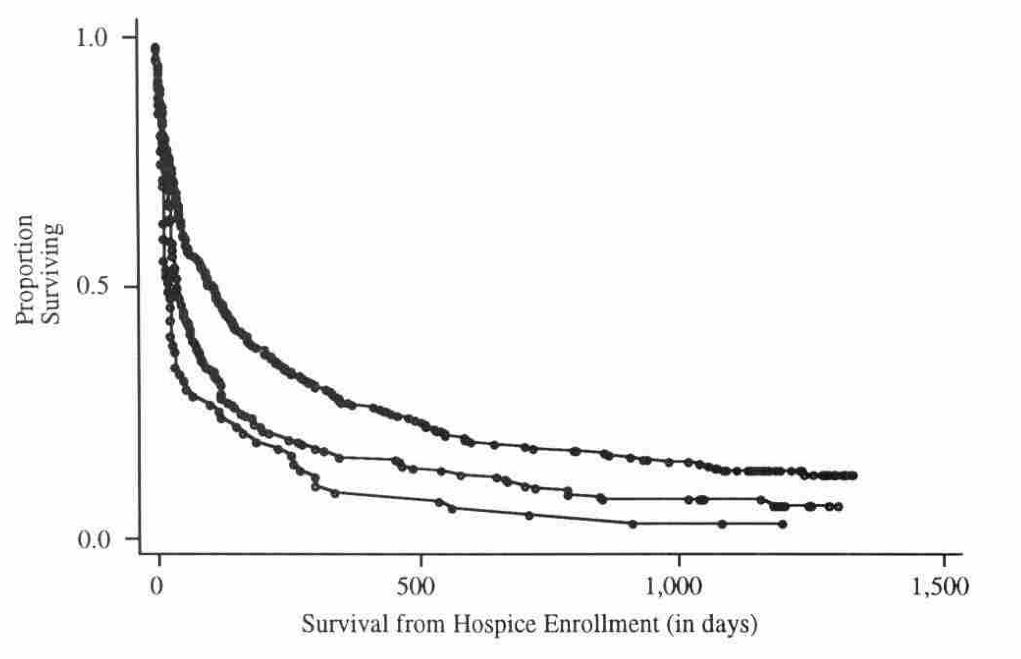
Spousal Illness Burden Is Associated with Delayed Use of Hospice Care in Terminally Ill Patients
Abstract
Patients' families are important in hospice not only because they themselves might benefit from it, but also because they influence whether and how hospice is used to begin with. We hypothesized that, among the married, people with less capable spouses (in this case, those who are less healthy) should be less able to use home hospice care and should enroll in hospice later in the course of their illness, closer to death. We tested this hypothesis by evaluating the impact of spousal health on the timing of patients' use of hospice in a select group of 517 couples, a total of 1034 patients, for whom we have health data for both partners from Medicare claims records. We evaluated cohort survival using the Kaplan-Meier method and Cox regression, and we measured illness burden using the Charlson comorbidity score. Among the probands, 45.6% had a primary cancer diagnosis, 44.5% were female, 7.5% were nonwhite, their mean age was 80.0 years (+/-7.6 SD), and their mean Charlson score was 3.1 +/- 3.0. The probands' median survival after hospice enrollment was 55 days. Spouses were similarly composed demographically, but were less likely to have a cancer primary diagnosis (35.4% had cancer) and were slightly younger than the probands; their mean Charlson score was 2.9 +/- 2.9. Each additional point in the Charlson score of the spouse, controlling for measured characteristics of the proband, is associated with a 5.1% increase in the risk of death after enrollment. That is, after controlling for the characteristics of hospice patients themselves, those with sicker spouses are enrolled later. Compared with patients with the healthiest spouses, those with moderately sick and very sick spouses had considerably later enrollment into hospice, with the median survival decreasing from 111 to 49 to 22 days across the groups. Our data suggest that there may be a separate role of spousal health in affecting the time of hospice enrollment, and that patients' social support may affect not just their health status to begin with, but also their use of health care in general.
Citation:
N.A. Christakis and T.J. Iwashyna, "Spousal Illness Burden Is Associated with Delayed Use of Hospice Care in Terminally Ill Patients" Journal of Palliative Medicine, 1(1): 3-10 (March 1998)